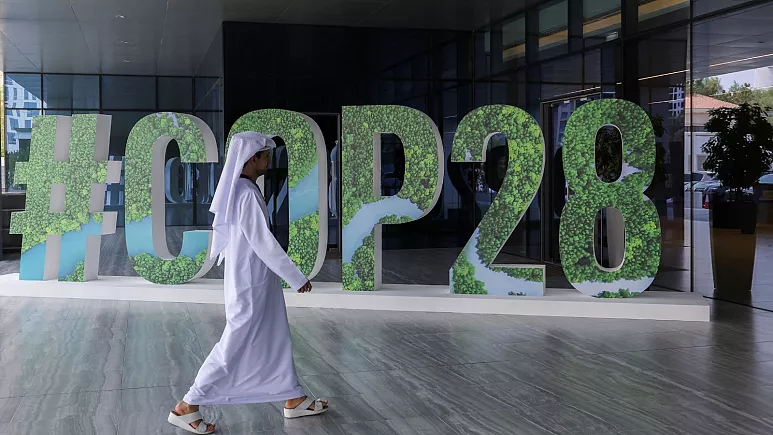The miseries afflicting Delhi due to smog caused by, among other factors, stubble burning are no isolated development. One of our era’s great and unpalatable truths is that global food production and the climate emergency are integrally connected. Drought, flood and other extreme weather events are threatening farming across the globe. Yet, the irony is greenhouse gas emission from agriculture is also a major contributing factor for global heating. This is going to be one of the top items in the agenda of the COP28 to be held in Dubai later this month.
A third of the world’s food production is in danger due to the climate crisis, but at the same time our food production systems are one of the key contributors to climate breakdown. Researchers have come out with startling revelations about greenhouse gas emissions from farming and the accompanying land use change that happens too often. For example, clearing forests and drying out wetlands to make room for crops and livestock have led to more than a fifth of global carbon output, according to the Inter-governmental Panel on Climate Change (IPCC).
Unfortunately, however, discussions of the world’s food systems, their vulnerability and their impacts take place only in the sidelines of the annual UN climate change negotiations and given minimal attention.
This year may hold out some promise in this regard. For the first time there will be a dedicated Food Day and agriculture, water and food will be the focus of at least 22 major events during the fortnight of COP28 talks from 30 November to 13 December, presided over by the United Arab Emirates. There will also be a dedicated Food4Climate pavilion in ExpoCity where the talks will be held.
For the first time, too, the Food and Agricultural Organisation (FAO) will outline how food systems must change for the world so as to stay within the globally agreed goal of limiting temperature rise to 1.5 degree Celsius above pre-industrial levels. As experts have been warning the governments if the limit is exceeded the impact of the climate crisis on food systems will become catastrophic.
This research stresses that animal farming, for meat and dairy, must be held in check all over the world if targets to halve emissions by 2030 and reach net zero by 2050 are to be met. COPs have, by and large, acknowledged recognising farming both as a major contributor to global climate change and a potential solution to climate change.
Experts are drawing the attention of policymakers across the world to the fact that for many wealthy countries significant reductions in meat and dairy consumption should be part of the commitments of the nations to address the climate crisis. At the same time for poorer nations, where rates of per capita meat and dairy consumption are often very low, the main policy is geared towards ensuring food security, nutrition, adaptation and resilience. The COP28 needs to address this dichotomy in its proposed declaration.
It is interesting to note that Sultan Al Jaber, who wears three hats as the UAE’s minister for advanced technology, the chief executive of its national oil company, Adnoc, and the COP president designate, takes a keen interest in food issues. He has told the media it is not enough to focus on the emissions from fossil fuels, but emissions from all sectors, including agriculture and land use change must be taken into account. He uses statistics to build his case that too much emphasis is being laid on controlling use of fossil fuel. It is true that 30 per cent of carbon emission comes from industry and another 30 per cent from agriculture.
Food experts, however, warn the world against the pernicious effect of Western diets and their impact, in terms of methane from livestock production for food and dairy and the waste and careless overuse of resources involved.
It is hoped the deliberations later this month in Dubai will seriously take up the issue of the potential threat to the climate by farming.
